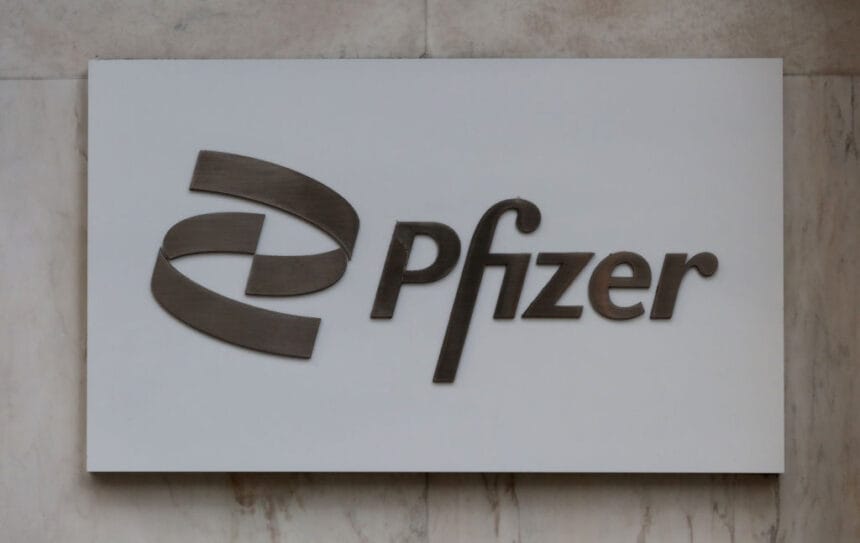Pfizer is back at the big game.
The pharma giant is set to air a 60-second ad during the third quarter of Super Bowl LVIII on Sunday.
Pfizer is unveiling Here’s to Science, a national ad campaign centered around its vision for the future of oncology — all set to “Don’t Stop Me Now” by Queen.
Taking place in a large library, the ad features singing portraits and sculptures of historical figures such as Isaac Newton, Copernicus, Charles Pfizer and Charles F. Erhart.
In honor of its 175th anniversary, the drugmaker is celebrating the legacy of science and medicine with a certain amount of pizazz.
Major scientific innovations and medical milestones referenced in the ad include the discovery of penicillin, the influence of Marie Maynard Daly — the first African American to receive a PhD, as well as appearances by Mary Somerville, Galileo and Hippocrates.
“Here’s to science. Here’s to the next thing,” the ad’s text reads at the end before encouraging viewers to visit LetsOutdoCancer.com.
The ad was created in collaboration with Publicis Conseil, LeTruc/Publicis NY, Pfizer and others. The production agencies included Prodigious France, PXP, Le Pac, Boogie Films, while the post-production agencies were Le Pac and Mathematic.
While the minute-long ad will be seen by what is projected to be the largest American TV audience of the year, the drugmaker is no stranger to advertising during football games — especially when Kansas City Chiefs tight end Travis Kelce is playing.
Earlier in the NFL season, Pfizer drafted the two-time Super Bowl champion and Taylor Swift boyfriend to star in 30-second commercials promoting its updated COVID-19 boosters.
Here’s to Science marks Pfizer’s return to advertising during the Super Bowl after being absent for a few years. The drugmaker joins the company of other health and wellness brands with commercials airing during the game, including Astellas Pharma, Dove and Power to the Patients.
The ad also clearly indicates that the company is positioning itself in a new direction after years of developing and marketing its vaccines during the COVID pandemic.
Pfizer has set its sight on opportunities in the oncology space and has taken steps to actualize them — most notably acquiring cancer-focused biotech Seagen last year for $43 billion. The deal brings Seagen’s antibody-drug conjugate (ADC) technology into the fold at a critical time for Pfizer considering that a number of its Big Pharma rivals have scooped up key ADC assets over the past year.
Additionally, One of Seagen’s most promising drug candidates, Tukysa (tucatinib), met the main goal of a Phase 3 trial over the summer for treating patients with second-line HER2-positive metastatic breast cancer.
This would be a boost to Pfizer’s oncology operations, as revenues slid 3% in Q4 2023 to $2.9 billion, while its full-year division revenues dropped 4% to $11.6 billion, according to its most recent earnings report.
The company said it would offer additional details on its plans for the new Pfizer Oncology Division at the end of this month.
To read a May 2024 article about interactive pharma CTV ads outpacing other ad formats for consumer engagement, click here.







